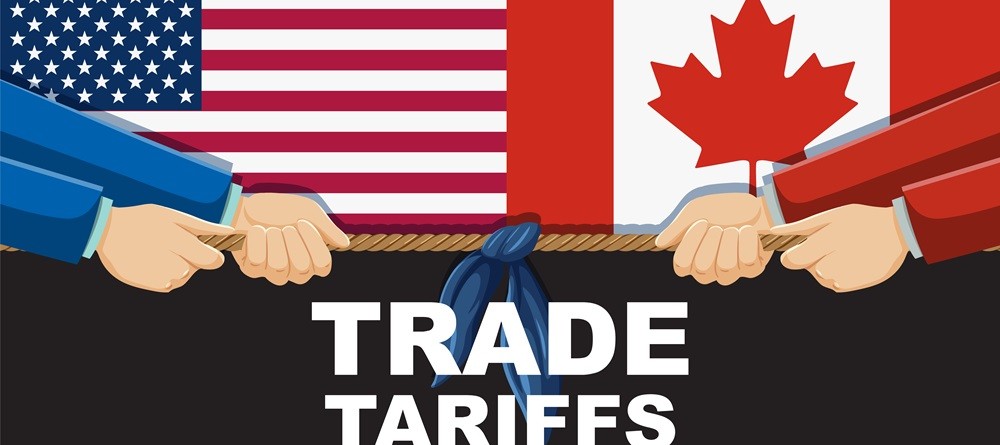Canadian Small Businesses Face Tariff Crisis
A new report from the Canadian Federation of Independent Business (CFIB) paints a grim picture for small and medium-sized enterprises (SMEs) across Canada, as ongoing trade tensions with the United States and China exacerbate financial pressures. Released on August 20, 2025, the CFIB’s survey of over 1,700 members reveals that 38% of small businesses affected by tariffs may not survive another year without relief, while 19% indicate they could shutter within six months under current conditions. These figures underscore a broader crisis, with 62% of respondents reporting higher operating expenses and 48% facing reduced revenues due to supply chain disruptions (41%) and delayed investments (36%).
“Small businesses don’t have a lot of runway left,” stated Corinne Pohlmann, CFIB’s Executive Vice-President of Advocacy, in the report’s release. “They are trying their best to absorb the costs, but if nothing changes, they will be forced to make some tough decisions. The worst outcome for Canada in the trade war is a bad deal, but the second-worst outcome is the never-ending uncertainty small business owners have been wrestling with for the past six months.” Pohlmann emphasized that while a poor trade agreement would be catastrophic, prolonged instability is already driving closures and layoffs.
The CFIB data highlights specific pain points: U.S. and Canadian tariffs on steel and aluminum are affecting 59% of SMEs, while retaliatory tariffs on other U.S. goods impact 58%. Additionally, nearly one-third of businesses anticipate negative effects from the impending global removal of the U.S. de minimis exemption, which allows duty-free entry for shipments valued under US$800. This exemption, already eliminated for Chinese and Hong Kong-origin goods since May 2, 2025, will end for all countries, including Canada, on August 29, 2025, per an executive order signed by U.S. President Donald Trump on July 30. For Canadian exporters, this means low-value e-commerce shipments—common for small businesses selling apparel, accessories, or artisanal goods—will now incur duties, potentially increasing costs by 10-25% or more depending on product classification. Experts warn this could price out niche producers, with some estimating a 20-30% drop in U.S. sales for affected Canadian SMEs.
Escalating U.S.-Canada Trade Tensions
The root of much of this turmoil stems from U.S. tariffs imposed under Trump’s second administration. On February 1, 2025, Trump declared national emergencies related to fentanyl trafficking and border security, imposing 25% tariffs on Canadian and Mexican imports (10% on Canadian energy) effective February 4. These were paused for negotiations but reinstated and escalated amid failed talks. By August 2025, non-CUSMA-covered Canadian products face 35% tariffs, with 50% on steel, aluminum, and copper. Trump has also threatened 200% duties on pharmaceuticals and recently imposed 50% tariffs on copper imports starting August 1, citing national security.
Canada’s canola sector faces additional headwinds from China, which imposed 100% tariffs on Canadian canola oil and meal effective March 20, 2025, in retaliation for Canada’s 100% tariffs on Chinese electric vehicles and 25% on steel/aluminum. On August 12, China escalated with a preliminary 75.8% anti-dumping duty on Canadian canola seed, effective August 15, effectively closing a market worth nearly $5 billion annually. This has already depressed canola futures by 6.5%, wiping out millions in farm value and threatening 200,000 jobs in the sector.
Key Impacts on Canadian SMEs Percentage Affected Examples
Higher Expenses 62% Increased input costs from metal tariffs
Lower Revenues 48% Reduced U.S. demand due to duties
Supply Chain Disruptions 41% Delays in cross-border shipping
Paused Investments 36% Uncertainty halting expansions
De Minimis Loss ~33% Higher costs for e-commerce exports
Government Responses and Calls for More Support
Under Prime Minister Mark Carney, who assumed office on March 14, 2025, following Justin Trudeau’s resignation amid political turmoil, Canada has mounted a robust “Team Canada” response. On March 4, Finance Minister François-Philippe Champagne announced 25% countermeasures on $30 billion in U.S. goods, expanding to $155 billion total, including spirits, appliances, and vehicles. Revenues from these—estimated at over $90 billion before remissions—are pledged to support affected sectors.
Aid packages include $1.3 billion for border security enhancements, $700 million in loan guarantees for forestry, and $500 million for product diversification in lumber. On April 15, Champagne introduced performance-based remissions for automakers and temporary six-month relief for manufacturing inputs, public health goods, and national security items. Provinces have joined in: Alberta halted U.S. alcohol purchases, British Columbia removed American liquor from shelves, and Manitoba allocated $500 million for tariff-impacted businesses.
CFIB President Dan Kelly urged redirecting tariff revenues to SMEs, including a temporary zero federal small business tax rate (from 9%) and rebates modeled on carbon tax refunds. A strong majority (82%) of surveyed businesses agree that Ottawa should prioritize SME support from the billions in tariff collections. “If the government wants to build one Canadian economy, it needs to ensure small businesses are part of the solution,” Pohlmann added.
Broader Economic Ramifications and Outlook
The Tax Foundation estimates Trump’s tariffs could reduce U.S. GDP by 1.5% in 2026, with knock-on effects for Canada, where bilateral trade exceeds $900 billion annually. Canadian exports to the U.S.—three-quarters of total exports—are at risk, particularly in autos, energy, and metals. Diversification efforts, like Carney’s Indo-Pacific trade missions, aim to mitigate this, but experts note rebuilding markets takes years.
As negotiations continue, CFIB warns that without swift action—such as eliminating internal trade barriers and payroll taxes—Canada’s productivity crisis will worsen. “Canada can’t fix its productivity crisis without empowering its entrepreneurs,” Pohlmann said. With the CUSMA review looming in 2026, stakeholders hope for resolution, but for now, small businesses remain on the front lines of this trade war.











